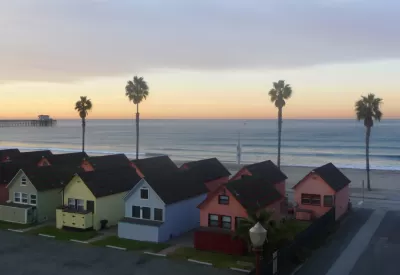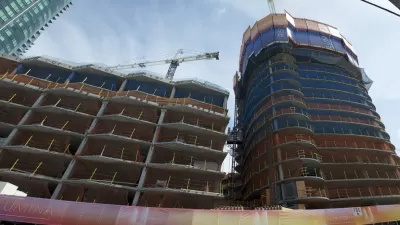Why local governments can not always be trusted to run housing policy.

When I write about how zoning increases rents and housing prices, I often get comments stating something like: "I realize that neighborhood elites often abuse zoning, but shouldn’t towns and cities be able to balance the interests of neighborhood residents with broader public interests?" Ten year ago, I would have said, "yes." But now, I favor broader, more radical remedies that limit municipal zoning rights. Why?
First, because under the current zoning system, it is irrational for a neighborhood or small municipality to do the right thing for the region's residents (that is, to allow new housing). Here's why: if my suburb or neighborhood is the only one to allow new housing, it gets flooded with any negative effects of new housing, but the impact of our virtuous deeds on regionwide housing costs is likely to be so small than even our existing renters won't see much of a benefit. Similarly, if my suburb or neighborhood is the only one to allow nonprofit or government-subsidized housing for poor people, my suburb gets all the costs of poverty (for example, a weaker local tax base) but may not benefit very much from a regional decline in homelessness. Thus, the town or neighborhood that allows new housing is essentially being a sucker.
By contrast, if every neighborhood allows new housing or subsidized housing, housing prices stay down for everyone and the rate of homelessness declines, benefiting the region as a whole. In a situation where what is rational for everyone is irrational for each individual municipality or neighborhood, the only way to ensure rational policy is to ensure uniformity: that is, for a higher level of government to take a meat ax to zoning across the region.
Second, many areas of law are based on the proposition that if a privilege has been scandalously abused, that privilege can be withdrawn by government or by a higher level of government. For example, in the abstract it might appear reasonable that states should limit the right to vote to people who can read, because illiterates might not be capable of voting responsibly. But in the pre-civil rights South, cities and states used literacy tests as a way to keep African-Americans from voting. To stop such abuse, Congress prohibited literacy tests in the Voting Rights Act. Zoning is like the literacy test: a policy that makes sense in principle, but that has been so scandalously abused that local governments can no longer be trusted with the privilege.
So if local jurisdictions cannot be trusted to balance interests, how far should states go to stop such abuse? It seems to me that even the most expensive housing markets do not suffer any obvious shortage of retail or offices or industry, so there is no reason for states to limit non-housing zoning. But where a housing crisis exists, local governments should no longer be allowed to use zoning to limit housing.

Alabama: Trump Terminates Settlements for Black Communities Harmed By Raw Sewage
Trump deemed the landmark civil rights agreement “illegal DEI and environmental justice policy.”

Study: Maui’s Plan to Convert Vacation Rentals to Long-Term Housing Could Cause Nearly $1 Billion Economic Loss
The plan would reduce visitor accommodation by 25% resulting in 1,900 jobs lost.

Why Should We Subsidize Public Transportation?
Many public transit agencies face financial stress due to rising costs, declining fare revenue, and declining subsidies. Transit advocates must provide a strong business case for increasing public transit funding.

Wind Energy on the Rise Despite Federal Policy Reversal
The Trump administration is revoking federal support for renewable energy, but demand for new projects continues unabated.

Passengers Flock to Caltrain After Electrification
The new electric trains are running faster and more reliably, leading to strong ridership growth on the Bay Area rail system.

Texas Churches Rally Behind ‘Yes in God’s Back Yard’ Legislation
Religious leaders want the state to reduce zoning regulations to streamline leasing church-owned land to housing developers.
Urban Design for Planners 1: Software Tools
This six-course series explores essential urban design concepts using open source software and equips planners with the tools they need to participate fully in the urban design process.
Planning for Universal Design
Learn the tools for implementing Universal Design in planning regulations.
Caltrans
Smith Gee Studio
Institute for Housing and Urban Development Studies (IHS)
City of Grandview
Harvard GSD Executive Education
Toledo-Lucas County Plan Commissions
Salt Lake City
NYU Wagner Graduate School of Public Service






























